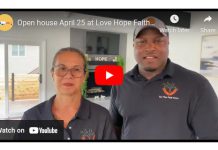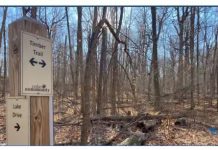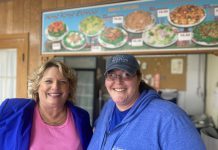West Bend, WI – For over 15 years, Dave Bohn has been writing down memories of his childhood, growing up on the family farm, just south of West Bend on Hwy P. He hopes his writings will preserve the often-overlooked stories of ordinary farmers and everyday farm life in rural Washington County during the Great Depression through the eyes of a local farm boy.
My Grandpa Bohn had two big hobbies he liked: one was to play the German card game Skat, and the other was to fish. And that’s how I got my love of fishing.
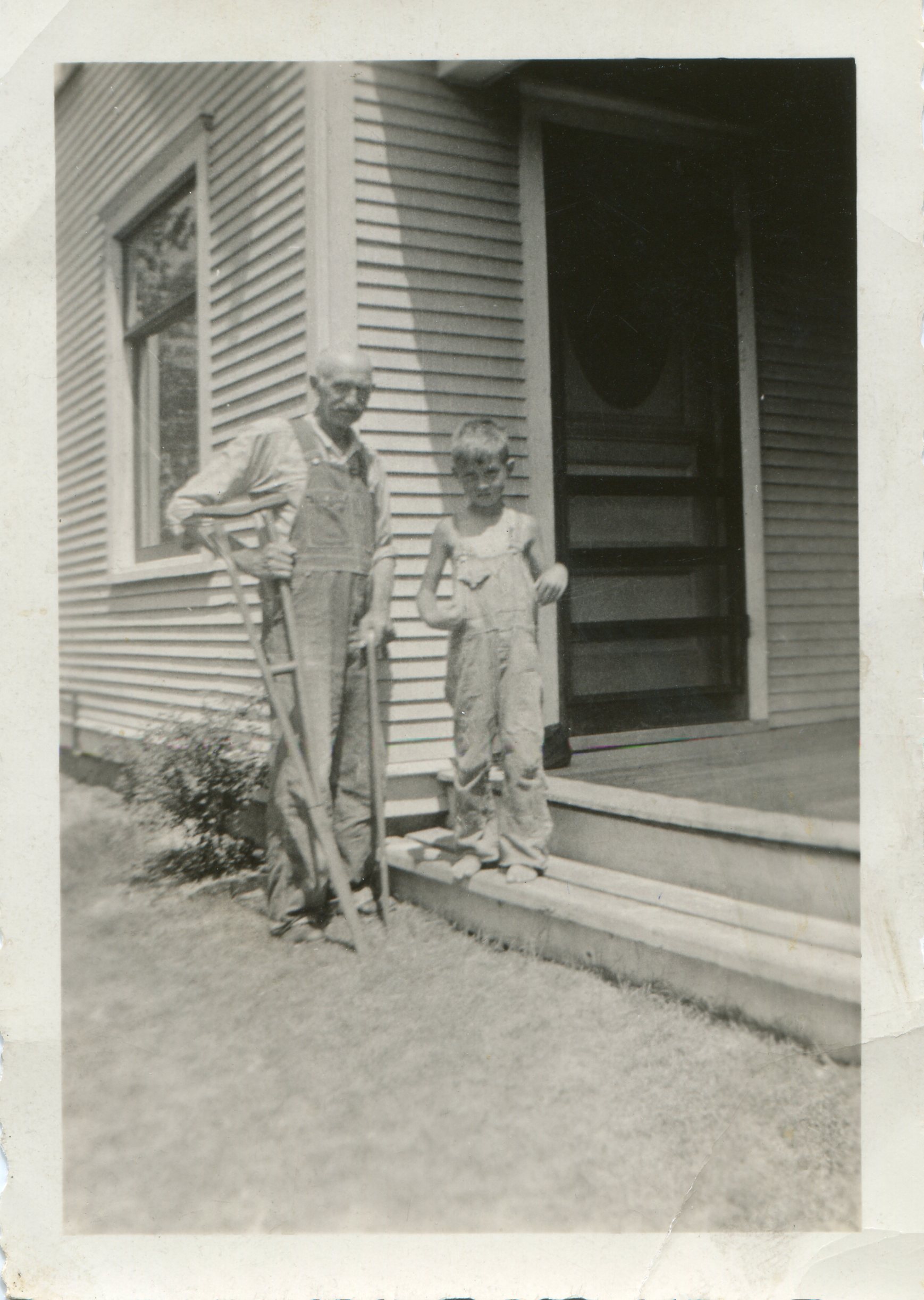
Grandpa Bohn (George Ben) was born in 1869 in the Town of Polk. He was the second youngest of 12 children. His parents had immigrated from Germany with his four oldest brothers and sisters. Grandpa lived in Washington County his entire life, so he knew the lakes around here well.
When he was a younger man, he would take a horse and buggy to go fishing, as there were no cars at that time. I guess they just tied the horse to a tree while they fished.
Click HERE to SUBSCRIBE to FREE local news at
Washington County Insider on YouTube
Several lakes were close when he and my Grandma Bohn lived on their farm near the Village of Cedar Creek. There was Silver Lake, Hackbarth Lake, Hasmer Lake in Jackson, Tillie Lake in Mayfield, Wallace Lake, Little Cedar Lake and Big Cedar Lake, all within two or three miles or so of where they lived.
In about 1914, Grandpa and Grandma Bohn moved to the home that I grew up in on Hwy 55 (now, Hwy P). Grandpa died in 1937 when I was just 7 years old, but I still have quite a few memories of him. Probably because he lived upstairs in our house, and he was around all the time. I always remember Grandpa with a cane or a crutch.
I remember him going fishing for panfish about once a week when the weather was good. That was the only entertainment he really had as he got older –fishing and playing Skat. He didn’t drive, so someone had to drop him off and pick him up, and Dad always seemed to make the time.
Grandpa did like to fish, and Dad did too, so that’s how we got into it. I remember our family was always into fishing, as we started early in life. In the late 1930’s and early 1940’s, Dad would take me and Tom fishing a lot, whenever he had the time. Tom and I were really close and always did things together. Sometimes my sister Mary Ann (Falter) would come along too, but not as a rule. My brother Jerry was a little too young to fish.
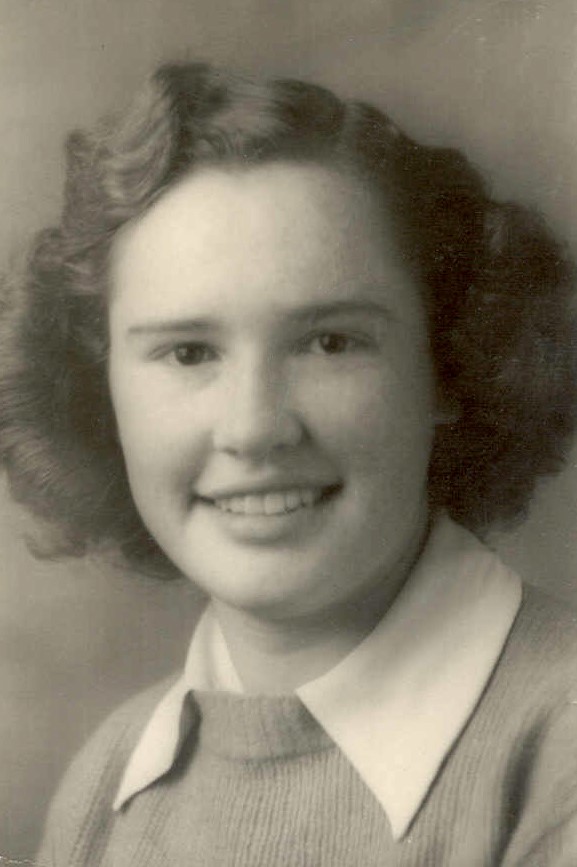
Tom and I would dig up some worms for bait, see that the cane poles had lines and hooks and corks, and Dad would take us fishing for pan fish. That was the only fishing I recall doing when we were kids.
There were places at the area lakes where you could rent a boat for a day to fish. Most boats would leak a little, so you had to bail the water out or you would get wet feet. Most fishing gear at that time was just a hook, line, sinker, cork, and a cane pole.
We had to improvise our fishing equipment when we were little kids. We didn’t have any fishing reels. They may have had them at that time, but we didn’t have any. We used a spool of thread for the line. We just took it out of Mom’s sewing machine. There were different strengths of thread for sewing and it was written right on the spool, so we would know which thread to use. For hooks, we would take one of Mom’s stick pins and bend it in the shape of a hook.
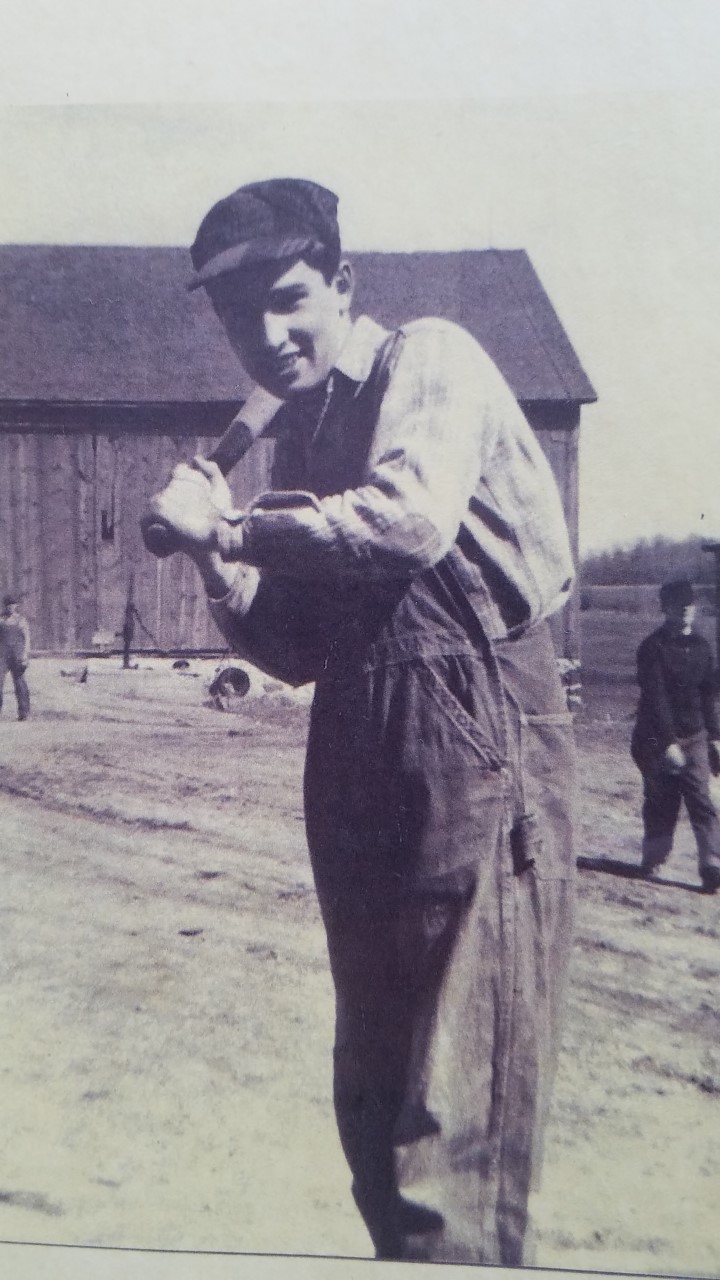
Click HERE to read about the Boys of Summer’s Past by Dave Bohn
Dad had about a half dozen cane poles that we would use. We just cut some thread about the length of the cane pole and tied the thread to the top of the pole. Since we were fishing for pan fish, we were alright most of the time using Mom’s thread which didn’t break too often. When we were done fishing, we would wind the thread around the pole a few times, bring it down and fasten the hook to the bottom of the pole.
We used corks from bottles as a bobber, as corks were common on all bottles at the time. There were no screw-on caps or even metal caps that I can remember. We sliced the cork and then put the line/thread into the slice. It did the job.
Finally, we would attach the cane poles to the car for the trip to the lake. We slid the poles along the side of the head light which stuck out on the old Ford cars and then tied the back end of the pole to the door handle and off to Little Cedar Lake we went.
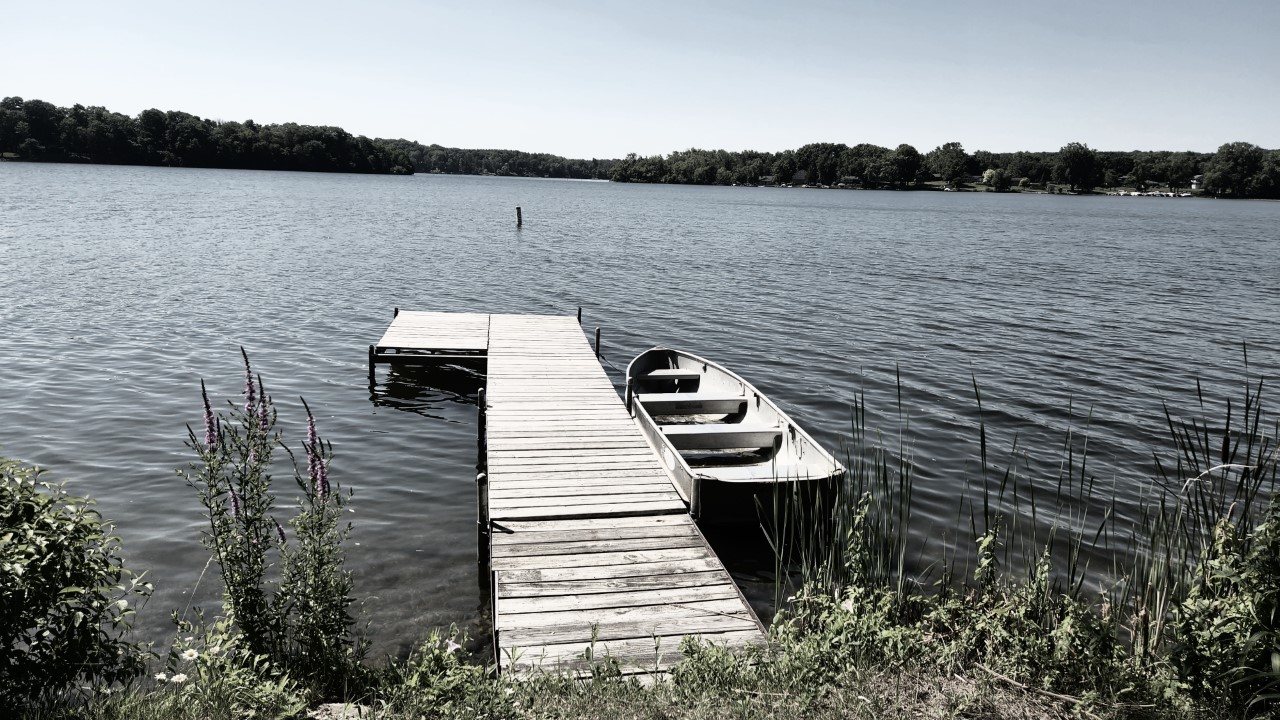
When we were kids, Dad would take us to Little Cedar Lake quite often in late spring. We always fished for bluegills. Most of the time, we’d go when the bluegills were spawning and close to shore. The bluegills would take their fins and brush the topsoil away to expose sand where they would lay their eggs. You could see the white sand, so you could tell where they were spawning. When they were spawning, that was the time when Dad took me and Tom fishing.
The north end of Little Cedar Lake was called the “Kettle” and that is where we usually fished. Dad would rent a boat there from L.C. Richter for 50 cents per day. Mr Richter was older, but he was really nice. I read that he raised his prices to $1.00 a day later, but Tom and I both remember it was 50 cents when we were young. That included an anchor and the oars to row the boat, as there were no motors at the time, at least we didn’t know about them. Dad would row the boat to the fishing spot where Mr. Richter would suggest, but it wasn’t always the right spot to catch fish. At noon, we would eat a picnic lunch that Mom had packed for us and drink cold coffee with sugar– it was good.
We caught fish most of the time, mostly blue gills, some sunfish, perch, and crappies. There was no fishing license requirement at the time. When we were really young, the limit was 50 bluegills. But then they cut it down to 25. We rarely would catch the limit, but we always had fun. We didn’t have much money at that time, but it was a day out for us kids for 50 cents.
Click HEREto read about finding Indian arrowheads by Dave Bohn
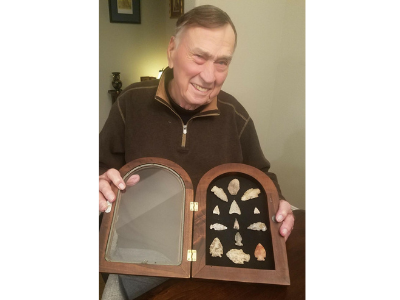
When I was about six years old and my brother Tom about eight or nine years old, we started a little business selling worms. In the summer, we would sell angle worms and minnows to the fishermen who drove past our house on their way to one of the area lakes.
We would dig for angle worms on our farm near the chicken house. The chickens were a big help with this as their food (mash, as we called it) would spill out of their feeders in the shade under the nearby apple trees, along with their drinking water. Their drinking water was changed daily, so any water from the previous day that wasn’t used was just poured on the ground. The moisture and the mash that spilled was ideal for the worms to feed on.
When mixed with excess water, it was perfect for growing worms. The chicken feed area is where we would dig for the worms. We would store them in a big bucket on the north side of our house, out of the hot sun.
We put a “Worms for Sale” sign on the highway in front of our house, so fishermen would just stop. We kids had very little contact with the outside world until we started selling worms to fishermen on their way to the lakes. We eventually had a lot of regular customers. We would sell the worms for 25 cents for 50 worms. At some point, we did raise our prices and got a penny for each worm.
Most fishermen would just buy 50 worms. We tried to have 100-150 worms in the bucket at all times during the summer months. Weekends were always busier, so we usually dug more worms for those days. If it was a Sunday and we knew we’d get a lot of business, we’d count out the worms ahead of time and put them in tin cans, filled with ground. 50 to a tin can. They didn’t last long in the tin cans, so we couldn’t count them out unless we knew we would sell them.
I think my sister Mary Ann did most of the work with the worm business. She would help Tom and me pick the worms from the ground that had been turned over with a shovel. My Grandma Bohn helped, too. She lived upstairs and would sometimes spade up the area for us to make it easier to pick up the worms. Once in a while, Dad would dig, too. But it was mostly Grandma and Mary Ann who would help. Mary Ann was usually the one who sold the worms to the fishermen because she was at the house, while Tom and I were out helping Dad or down at the creek.
We also sold minnows, which we caught in Rusco Creek with a hook and line and worms as bait. Almost every day in the summer, we would fish for minnows and then go swimming. Our minnow business wasn’t the most profitable for us, as the minnows would frequently die before we could sell them. We would put them in a livestock water tank when we got home, but they’d only last a few days. We did sell quite a few to fishermen passing through but keeping them alive was the biggest problem. We sold two or three times as many worms as minnows.
We would earn several hundred dollars in a season selling worms to fishermen passing by. That was a lot of money for us kids. The money we made from selling worms and minnows was split between Tom, Mary Ann and me. I don’t really remember what we did with all that money, but we were glad to have it.
Tom recalls Mom set up bank accounts at the First State Bank in town for each of us and deposited most of the money in our accounts. That does sound like Mom.
When we would get home from fishing, it was Tom’s and my job to clean the fish and bring them to Mom. We would clean them next to the barn on the cement slab that covered the well room. We put the fish guts onto the manure pile where they would compost. Then we would take the fish up to Mom in the house and she would roll them in flour and fry them up for dinner. Sometimes we’d give Grandma some. If we didn’t eat all the fish that day, we’d put them on ice and store them in the cellar for a few days.
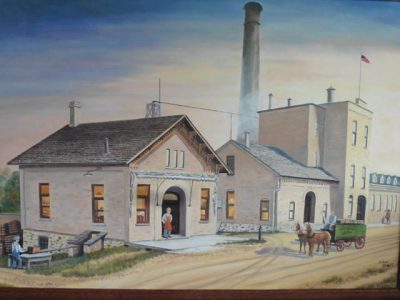
We got the ice at Lithia Brewery, on the northeast corner of Main Street and Hwy 33. The Brewery had a little icehouse where they stored ice they would harvest from the local lakes in the winter and sell to local people throughout the year. I think paying for the ice was on the honor system. If I remember right, Dad paid 25 cents for a block of ice about 24” x 24”. Lithia Brewery also had a big icehouse that was used solely for the brewery.
When Dad went to town, he’d pick up a block of ice at Lithia and put it in a cardboard box in the cellar when he got home. We didn’t have an icebox for keeping things cold and we really didn’t use much ice. We only used it when we had fish. And when the fish were biting, we looked forward to a good fish dinner.

Our family was always big into fishing, thanks to Grandpa and Dad. Dad’s favorite sport was fishing, and he did his share until he passed away at the age of 90. One of Dad’s best days was when he caught a 50”, 28-pound muskie on Big Sand Lake in Vilas County when he was 85 years old.
He and Leona Spaeth, his cousin, were good friends and she was quite the angler too. They were out fishing for crappie in his small fishing boat with a 6-pound test line when a muskie bit. Believe it or not, he landed the muskie. Maybe it was with a little heavenly help from Grandpa.
Back when I was a boy fishing for blue gills on Little Cedar with Dad and Tom, it never did cross my mind that one day I’d go fishing for king salmon in the wilds of Alaska or piranha in the Amazon of Brazil. But over the years, that’s exactly where fishing has taken me. Tom and I are both in our nineties now. Fishing has passed us by, but we still have a lifetime of memories and fish stories to tell.
Click HERE to read more local history stories about growing up in
West Bend, WI by Dave Bohn


